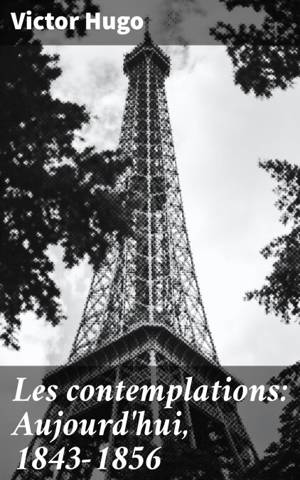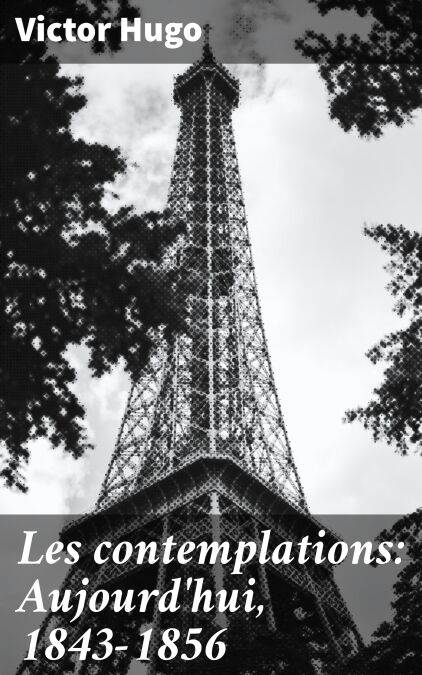
Je cadeautjes zeker op tijd in huis hebben voor de feestdagen? Kom langs in onze winkels en vind het perfecte geschenk!
- Afhalen na 1 uur in een winkel met voorraad
- Gratis thuislevering in België vanaf € 30
- Ruim aanbod met 7 miljoen producten
Je cadeautjes zeker op tijd in huis hebben voor de feestdagen? Kom langs in onze winkels en vind het perfecte geschenk!
- Afhalen na 1 uur in een winkel met voorraad
- Gratis thuislevering in België vanaf € 30
- Ruim aanbod met 7 miljoen producten
Zoeken
Les contemplations: Aujourd'hui, 1843-1856 E-BOOK
Exploration émotionnelle du XIXe siècle à travers la poésie intense de Victor Hugo
Victor Hugo
E-book | Frans
€ 1,99
+ 1 punten
Uitvoering
Omschrijving
Published between 1856 and 1860, 'Les Contemplations' is a collection of poems illustrating Victor Hugo's introspective journey through love, loss, and existence. The work is divided into two volumes, with the first section, 'Aujour'hui,' showcasing a profound exploration of personal grief and the beauty of nature, interspersed with a rich lyrical style characterized by vivid imagery and philosophical depth. In this context, 'Les Contemplations' stands as a cornerstone of French Romanticism, reflecting the turbulent socio-political climate of the time while echoing Hugo's own personal tribulations, including the untimely death of his daughter, Léopoldine. Victor Hugo, a titan of French literature, was deeply influenced by his experiences as both a political figure and a passionate advocate for social justice. His engagement with the struggles of the common people and his turbulent personal life undoubtedly shaped the emotional intensity present in 'Les Contemplations.' Moreover, Hugo's reflections on nature and spirituality indicate his desire to find solace amidst chaos—a motif recurrent in his oeuvre. His literary background is further enriched by a commitment to art as a vehicle for moral and social reform, enhancing the poignancy of his poetic vision. I strongly recommend 'Les Contemplations' to readers seeking not only beauty in language but also philosophical insight into the human condition. The raw emotionality coupled with Hugo's masterful craftsmanship invites readers into an intimate realm of reflection and contemplation. Thus, 'Les Contemplations' is not merely a collection of poems; it is an exploration of life's profound mysteries that resonates across time and continues to inspire generations.
Specificaties
Betrokkenen
- Auteur(s):
- Uitgeverij:
Inhoud
- Aantal bladzijden:
- 222
- Taal:
- Frans
Eigenschappen
- Productcode (EAN):
- 4064066082796
- Verschijningsdatum:
- 16/06/2020
- Uitvoering:
- E-book
- Beveiligd met:
- Digital watermarking
- Formaat:
- ePub

Alleen bij Standaard Boekhandel
+ 1 punten op je klantenkaart van Standaard Boekhandel
Beoordelingen
We publiceren alleen reviews die voldoen aan de voorwaarden voor reviews. Bekijk onze voorwaarden voor reviews.









